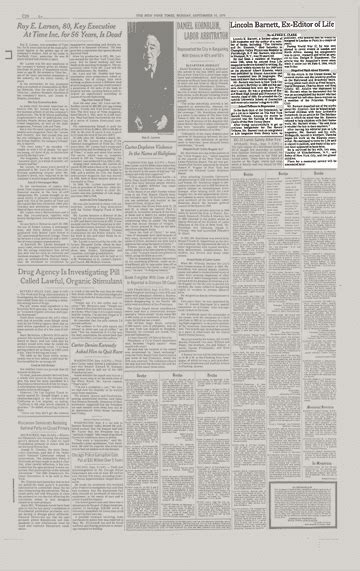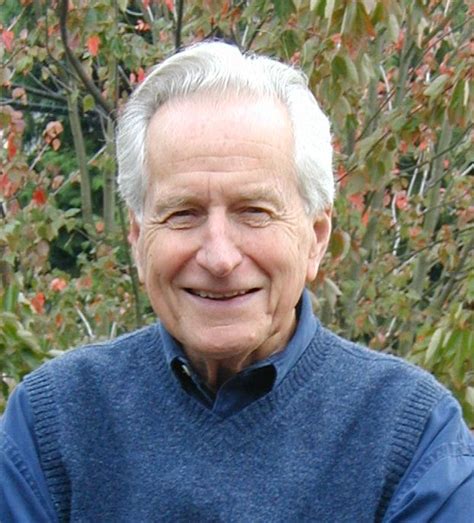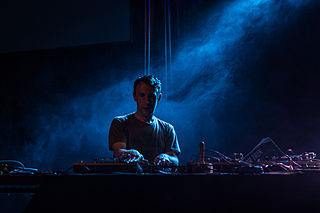A Quote by James Bryant Conant
In every section of the entire area where the word science may properly be applied, the limiting factor is a human one. We shall have rapid or slow advance in this direction or in that depending on the number of really first-class men who are engaged in the work in question. ... So in the last analysis, the future of science in this country will be determined by our basic educational policy.
Related Quotes
Science in England is not a profession: its cultivators are scarcely recognised even as a class. Our language itself contains no single term by which their occupation can be expressed. We borrow a foreign word [Savant] from another country whose high ambition it is to advance science, and whose deeper policy, in accord with more generous feelings, gives to the intellectual labourer reward and honour, in return for services which crown the nation with imperishable renown, and ultimately enrich the human race.
The responsibility for the creation of new scientific knowledge - and for most of its application - rests on that small body of men and women who understand the fundamental laws of nature and are skilled in the techniques of scientific research. We shall have rapid or slow advance on any scientific frontier depending on the number of highly qualified and trained scientists exploring it.
If you sense a deep human need, then you go back to all the basic science. If there is some missing, then you try to do more basic science and applied science until you get it. So you make the system to fulfill that need, rather than starting the other way around, where you have something and wonder what to do with it.
We are apt to say that a foreign policy is successful only when the country, or at any rate the governing class, is united behind it. In reality, every line of policy is repudiated by a section, often by an influential section, of the country concerned. A foreign minister who waited until everyone agreed with him would have no foreign policy at all.
This example illustrates the differences in the effects which may be produced by research in pure or applied science. A research on the lines of applied science would doubtless have led to improvement and development of the older methods - the research in pure science has given us an entirely new and much more powerful method. In fact, research in applied science leads to reforms, research in pure science leads to revolutions, and revolutions, whether political or industrial, are exceedingly profitable things if you are on the winning side.
The seventh factor of the basic ingredients of genius, as determined from an extensive analysis of the lives of outstanding men of this nation, is *the habit of going the extra mile.* You will never be a genius unless you make it a habit to do more and better than you are paid to do, every single day of your life.
But in the end, science does not provide the answers most of us require. Its story of our origins and of our end is, to say the least, unsatisfactory. To the question, "How did it all begin?", science answers, "Probably by an accident." To the question, "How will it all end?", science answers, "Probably by an accident." And to many people, the accidental life is not worth living. Moreover, the science-god has no answer to the question, "Why are we here?" and, to the question, "What moral instructions do you give us?", the science-god maintains silence.
The most controversial issues of the twenty-first century will pertain to the ends and means of modifying human behavior and who shall determine them. The first educational question will not be 'what knowledge is of the most worth?' but 'what kinds of human beings do we wish to produce?' The possibilities virtually defy our imagination.
Yoga is a science, and not a vague dreamy drifting or imagining. It is an applied science, a systematized collection of laws applied to bring about a definite end. It takes up the laws of psychology, applicable to the unfolding of the whole consciousness of man on every plane, in every world, and applies those rationally in a particular case. This rational application of the laws of unfolding consciousness acts exactly on the same principles that you see applied around you every day in other departments of science.
Ever since the beginning of modern science, the best minds have recognized that "the range of acknowledged ignorance will grow with the advance of science." Unfortunately, the popular effect of this scientific advance has been a belief, seemingly shared by many scientists, that the range of our ignorance is steadily diminishing and that we can therefore aim at more comprehensive and deliberate control of all human activities. It is for this reason that those intoxicated by the advance of knowledge so often become the enemies of freedom.
IF WE AND OUR POSTERITY SHALL BE TRUE TO THE CHRISTIAN RELIGION, IF WE AND THEY SHALL LIVE ALWAYS IN THE FEAR OF GOD AND SHALL RESPECT HIS COMMANDMENTS, IF WE AND THEY SHALL MAINTAIN JUST MORAL SENTIMENTS AND SUCH CONSCIENTIOUS CONVICTIONS OF DUTY AS SHALL CONTROL THE HEART AND LIFE, WE MAY HAVE THE HIGHEST HOPES OF THE FUTURE FORTUNES OF OUR COUNTRY. OUR COUNTRY WILL GO ON PROSPERING.
I've found that in life, and certainly in music, it's all just a series of occurrences in which you are constantly assessing the potential outcome of your decisions based on past precedence. As an aside, this is apparently the defining factor in science that separates artificial intelligence from human consciousness. One thing that our brains are really good at is taking a bunch of answers and extrapolating the question, whereas in computing, you input a question and it will provide an answer.





































